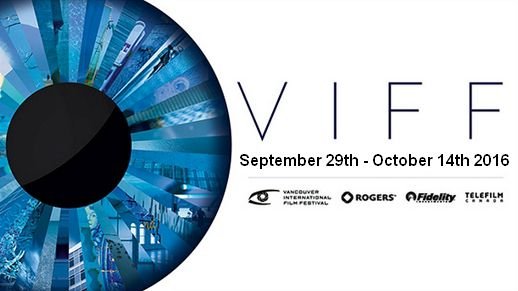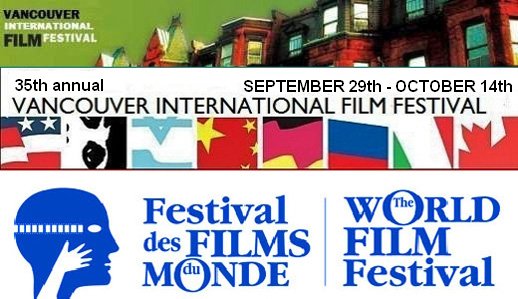
This year’s broad selection of Vancouver International Film Festival films showcases award-winning films that wowed viewers at international festivals, presented to Vancouver audiences for the first time. Selections from Cannes include Ken Loach’s Palme d’Or-winning I, Daniel Blake; Olivier Assayas’s Personal Shopper and Cristian Mungiu’s Graduation, which tied for Best Director; and Maren Ade’s highly acclaimed Toni Erdmann, awarded the Cannes Critics’ Prize. From Berlin, Gianfranco Rosi’s Golden Bear winner, Fire at Sea, will mark the director’s VIFF debut, and Mia Hansen-Løve returns to the Vancouver International Film Festival with her fourth outing Things to Come, which won her Berlin’s Best Director award.
As we’ve written about I, Daniel Blake, Graduation & Fire at Sea previously, today VanRamblings will introduce you to Personal Shopper, Toni Erdmann and Things to Come, as well as Barry Jenkins’ widely acclaimed Moonlight.
Personal Shopper. Kristen Stewart is the medium, in more ways than one, for this sophisticated genre exploration from director Olivier Assayas (Clouds of Sils Maria). As a fashion assistant whose twin brother has died, leaving her bereft and longing for messages from the other side, Stewart is fragile and enigmatic — and nearly always on-screen. From an opening sequence in a haunted house with an intricately constructed soundtrack to a high-tension, cat-and-mouse game on a trip from Paris to London and back set entirely to text messaging, Personal Shopper brings the psychological and supernatural thriller into the digital age.
Here’s what The Guardian’s lead film critic Peter Bradshaw had to say in his five star review of Personal Shopper …
“… captivating, bizarre, tense, fervently preposterous and an almost unclassifiable scary movie from Olivier Assayas, the film delivers the bat-squeak of pure craziness that we long for at Cannes, although at the first screening some very tiresome people continued the festival’s tradition of booing very good films.
Personal Shopper has that undefinable provocative élan that reminds me a little of Lars Von Trier’s Breaking The Waves. It is actually Assayas’ best film for a long time, and Stewart’s best performance to date — she stars in a supernatural fashionista-stalker nightmare where the villain could yet be the heroine’s own spiteful id. Is it The Devil Wears Prada meets The Handmaiden (also in Cannes, and at VIFF) with a touch of Single White Female?
Kristen Stewart’s performance is tremendous: she is calm and blank in the self-assured way of someone very competent, smart and young, yet her displays of emotion are very real and touching. She is entirely devoted to her smartphone, which is to be the conduit of her fears and there is a dash of pure Hitchcockian brilliance in a scene where she turns it on and a backlog of texts starts mounting up, bringing danger ever closer. With his reckless, audacious Personal Shopper, Olivier Assayas has brought excitement to the festival.”
Peter DeBruge in his Variety review calls Personal Shopper “a spine-tingling horror story,” while Indiewire’s Eric Kohn writes, “Personal Shopper presents a fully realized universe that merges visceral dread with deeper observations about its causes,” and Hollywood Elsewhere’s Jeffrey Wells, and a surfeit of other films critics, are quite simply gaga over the film.
Toni Erdmann. The most divisive film to play at both the Berlin and Telluride film festivals, one of the best reviewed art films of the year, some folks loved it while others hated it.
Here’s what Lee Marshall wrote in his Screen Daily review …
“Surprising, awkward, refreshing and, at times, downright hilarious, German director Maren Ade’s dazzlingly original follow-up to her 2009 Berlinale Silver Bear winner Everyone Else is that rarest of things: a nearly three-hour-long German-Austrian arthouse comedy-drama that (almost) never drags. Eliciting laughs and applause — in all the right places — at its Cannes press screening, this tale of a prankster father who uses practical jokes and disguises to rescue his adult daughter from the work-obsessed spiral of seriousness he feels she has sunk into also manages, without an ounce of schmaltz, to address big issues relating, among other themes, to a stressed, permanently online modern world where work is no longer something we leave behind at the office; how families communicate (or fail to); business ethics and sexism in the workplace.”
Giovanni Marchini Camia writing in Filmstage gives Toni Erdmann a solid “A”, writing, “This is a superb second feature well-deserving of Berlin’s Jury Prize, one of the most stirring cinematic experiences of the year, immensely rewarding to witness, ferocious, dazzling, and a masterpiece.”
Things To Come. One of VanRamblings favourite directors, in our books Mia Hansen-Løve can do no wrong, and a plethora of film critics would seem to share our sentiment in their reviews of her latest, Things to Come. Writing in Variety, Guy Lodge says …
“Mia Hansen-Løve and Isabelle Huppert prove a dream partnership in the director’s gorgeous, heart-cradling post-divorce drama. Huppert is such a persistently and prolifically rigorous performer that she risks being taken for granted in some of her vehicles, but this is a major, many-shaded work even by her lofty standards. Hansen-Løve’s oeuvre has acquired its own signature character of light, with sunshine streaming through even exchanges of most disconsolate darkness; conversely, only in the film’s contented, Brittany-set pre-credits prologue, set several years before a heartsore storm, do skies turn a flannelly grey. Hansen-Løve’s musical selections surprise just as often with their note-perfect sympathy to the action at hand: A critical use of that old chestnut Unchained Melody — crooned here not by the Righteous Brothers, but by the Fleetwoods — reps a very different appropriation of another film’s glory from the Kiarostami hat tip, but the outcome could hardly be lovelier.”
That’s all we’re going to give you, no précis of the story, no more excerpts of reviews, but only, “Go see Things To Come; you won’t be disappointed.”
Moonlight. One of the must-sees at VIFF 2016, a certain Oscar contender, and one of the best-reviewed films of the year, Barry Jenkins’ acclaimed tour-de-force, a Special VIFF Presentation, will screen only once, on Friday, October 7th, 9pm at The Centre for the Performing Arts.
We’ll do something a little different this time: Here are few “A” reviews …
- The Guardian (5 stars), Benjamin Lee. Moonlight is a profoundly moving film about growing up as a gay man in disguise, a difficult and damaging journey that’s realised with staggering care and delicacy and one that will resonate with anyone who has had to do the same. We’re starved of these narratives and Jenkins’ electrifying drama showcases why they are so hugely important, providing an audience with a rarely seen portrait of what it really means to be a black gay man in America today. It’s a stunning achievement.
- Screen Daily (A), Tim Grierson. An indelible portrait of an imperilled life, Moonlight is quietly devastating in its depiction of masculinity, race, poverty and identity. Ambitious in scope but precise in its execution, this deceptively small-scale character piece reverberates with compassion and insight.
- The Hollywood Reporter (A), David Rooney. A haunting reflection on African-American masculinity, writer-director Barry Jenkins’ intimate character study traces the life of a black gay man from his troubled Miami childhood to maturity, the film laced with superb and widely varied music choices that often play in illuminating contrast to the scene unfolding, the drama divided into three chapters unfolding during formative times of the central figure’s life, the early scenes especially beautiful, the film filled with moments of swoon-inducing romance to equal those of suffering and solitude, Nicholas Britell’s score melancholy and melodic, James Laxton’s cinematography soaked in sleepy, sun-scorched light early on and then burnished, darker tones later, it would be tempting to call Moonlight an instant landmark in queer black cinema, if that didn’t imply that the experience it portrays will speak only to a minority audience. Instead, this is a film that will strike plangent chords for anyone who has ever struggled with identity, or to find connections in a lonely world. It announces Jenkins as an important new voice.
And there we are. Four more indelible must-sees at VIFF 2016.
![]()
![]()
![]()
![]()
![]()
![]()
![]()
![]()
![]()
![]()
![]()
![]()
![]()
![]()
![]()
![]()
![]()
![]()
![]()
![]()
![]()
![]()
![]()
![]()
![]()
![]()
![]()
VanRamblings has now previewed twenty acclaimed VIFF films that are about to arrive on our shores having garnered critical acclaim at film festivals across the globe. Previous VanRamblings’ VIFF 2016 columns, very much like the one today, may be found here. Enjoy the read!



